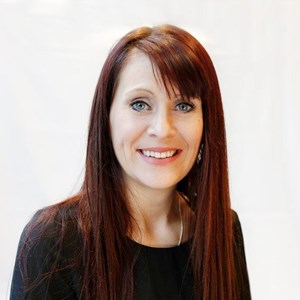
We’ve built this ethos over time, as signatories of the Women in Finance and CBI Race Ratio charters, and we have a bespoke ethnic minority leadership programme and a Global Inclusion Council, chaired by our Group CEO Amanda Blanc.
We have also established six global employee resource groups, - supporting colleagues across the business - focused on visible and invisible disabilities, gender, LGBT+, carers, race, ethnicity, faith, belief, culture, socio-economic background and age diversity, to shape and inspire the workforce of the future.
We want to ensure that our commitment to Diversity and Inclusion (D&I) runs through Aviva and this article will discuss how we see this reflected in our role as a pensions provider, as not one size fits all.
Defining diversity for pensions and providing choice
From a pensions perspective, we believe that greater diversity within workforces and trustee boards will provide greater understanding and, as a result, improvements in decision-making, leading to better outcomes in retirement for our customers.
To meet this ambition, we are keen supporters of the Pensions Management Institute in wanting to make pension trustee boards more inclusive.
In May 2020, Elizabeth Renshaw-Ames was appointed as the new Chair of Trustees of the Aviva Master Trust and the Trust now has more women than men occupying Trustee positions.
This is crucial for our customers in those cohorts or communities who might, historically, have not saved as much as other groups, particularly as autoenrollment has meant that thousands of people across the UK are saving into a pension for the first time.
The pensions gender gap persists, and men and women are still showing different levels of pension saving. Women are more likely to take career breaks so, at Aviva, we offer salary exchange, meaning that while everyone can save on their national insurance contributions, women are able to maintain their full pension contributions during maternity leave.
We also recognise the savings gap and need to appeal to a wide customer base, in our in-house Aviva Financial Advice (AFA) business, as follows:
- Our team are a diverse mix of gender and age – AFA’s management team is 50% female and its advisers 39% female, with advisers aged from 30 to 56. This is in contrast with the industry norm.
- Democratisation of advice - no minimum fund size required to ‘qualify’ for the service, if it’s in the customer’s best interest. We also offer an ‘abridged advice’ service in the Defined Benefits pension space, which is a lower cost advice service. We are also looking at expanding into advice on inheritance tax planning and investments.
- Work to challenge the pensions gap by piloting tailored communications and events to help women become more engaged with their finances.
Influencing others
We also believe that D&I is not just about Aviva – it’s about how we engage with other organisations and what that means for our customers.
At Aviva, and our investment arm Aviva Investors, we believe it is a shareholder’s duty to make companies accountable. An effective board is a function of the quality of its culture, processes and people. Central to this is building the right balance of directors with diverse skills, experience, backgrounds and perspectives. Diversity is one of the key criteria we look at when analysing boards.
Over the past two years, Aviva Investors has engaged with over 100 companies on diversity and will also take voting action against company management on diversity issues, something they started doing back in 2013. In 2019, Aviva Investors withheld support from 361 companies because of diversity issues.
Room for improvement
Despite our strides forward, we know that there are aspects of our business that we would like to change. Some of these areas are not just issues for Aviva, but for society.
One example of this relates to gender identities and how we communicate with our trans and non-binary customers. Some people identify as non-binary as their gender identity doesn’t sit in a neat box within the definition of ‘man’ or ‘woman’.
Not everyone is comfortable with titles such as ‘Mrs’, ‘Ms’ or ‘Mr’ – and they might prefer to be referred to using titles like ‘Mx’, ‘M’ or many others.
We recognise that using language to define someone’s gender identity is not only a sign of respect, but fundamentally displays a deeper understanding of who they are.
Currently, our legacy systems, and the way they interact, do not all have the facility to include gender neutral titles, however, we are committed to making this change.
We will continue to build and improve our approach to D&I for our employees, customers, clients, and supply chain.
Notes/Sources
This article was featured in Pensions Aspects magazine February 2021 edition.
Last update: 1 August 2024
You may also like:



